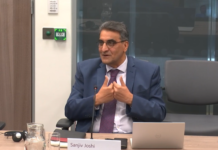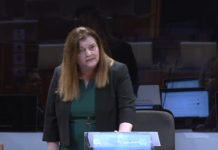Record proportion of UK CFOs expect significant operating cost rises
– CFOs report a record level of risk driven by geopolitics and inflation;
– Over a quarter of CFOs report significant or severe levels of supply chain disruption in Q1;
– CFOs are still looking to grow to their businesses, with a continued focus on investment and expansion as a top balance sheet priority.
Faced with a more uncertain economic climate, a record** number of finance leaders (98%) anticipate operating costs to rise in the year ahead, according to Deloitte’s UK CFO Survey Q1 2022. Almost half of CFOs (46%) expect these rises to be significant.
In light of cost increases, there has also been a sharp deterioration in the outlook for corporates’ margins. A majority of CFOs (71%) believe operating margins will fall over the next 12 months, compared to 44% in the previous quarter. But despite this, three-quarters expect revenues to rise over the next year.
Meanwhile, capital spending remains a strong priority for 21% of CFOs, even with a more challenging operating environment. Although this has dropped from last quarter’s record high (37%), it remains considerably above the five-year average of 14%.
Conducted between 16 and 30 March 2022, Deloitte’s latest quarterly CFO Survey captured sentiment amongst the UK’s largest businesses, against a backdrop of ‘Plan B’ COVID-19 restrictions easing and after the Russian invasion of Ukraine. The latest survey saw 89 CFOs participate, including CFOs of 22 FTSE 100 and 34 FTSE 250 companies. The combined market value of the 58 UK-listed companies that participated is £526 billion, approximately 20% of the UK quoted equity market.
Rising uncertainty and risk
The invasion of Ukraine has heightened the level of financial and economic uncertainty facing businesses. Over half of CFOs (56%) say that the level of uncertainty facing their business is high or very high.
Geopolitics has risen sharply as the top risk facing CFOs’ businesses. With the exception of the pandemic during Q2 and Q3 2020, the risk rating assigned to geopolitics is higher than any other factor since the question was first asked in 2014. Rising inflation, the prospect of further interest rate rises, and persistent labour shortages, also rank high on the list of CFO concerns.
Ian Stewart, chief economist at Deloitte, says:
“Rising geopolitical risk in the wake of the invasion of Ukraine and alongside high inflation mean that the external challenges faced by business are greater today than at any time in the last eight years. These risks now far eclipse Brexit and the pandemic, which have dominated the list of CFO concerns in recent years. Over the next year, CFOs believe a mix of rising costs and slower growth are set to squeeze margins.
“In spite of this – as finance leaders have become accustomed to navigating a more volatile business environment – they remain focused on capital spending and growing their businesses.”
Inflation and interest rates
Over three-quarters of CFOs (78%) expect inflation to exceed 2.5% in two-years’ time – the highest reading on record*. Meanwhile more than half (53%) expect inflation to settle between 2.5% and 3.5% in two-years’ time and a quarter expect it to remain above 3.5%.
Labour shortages, recruitment difficulties and supply chains
Just over a third (35%) of finance leaders report that their businesses have faced significant or severe recruitment difficulties in Q1 – a slight improvement from Q4 2021 (46%). CFOs anticipate labour shortages will persist, with around one in four saying these will be significant or severe in a year’s time.
In Q1, more than a quarter of CFOs reported significant or severe levels of supply chain disruption. A modest improvement in conditions is expected, with one in six CFOs anticipating similar levels of disruption in a year’s time.
Ian Howse, senior partner for Wales at Deloitte, said:
“In Wales we are hearing similar sentiments from clients. Business expansion and growth remain the priority but sentiment is tempered by the record level of risk from geopolitics, supply chain issues, labour shortages, rising inflation and the potential for further interest rate rises. However, CFOs are not reporting a widescale shift to defensive strategies, such as cost cutting, seen at the beginning of the pandemic.”
Help keep news FREE for our readers
Supporting your local community newspaper/online news outlet is crucial now more than ever. If you believe in independent journalism, then consider making a valuable contribution by making a one-time or monthly donation. We operate in rural areas where providing unbiased news can be challenging. Read More About Supporting The West Wales Chronicle
























